roscosmos
Latest

Russia is considering leaving the ISS for its own space station
Russia's space agency Roscosmos has reportedly started work on its own orbiting space station as it considers leaving the ISS by 2025.
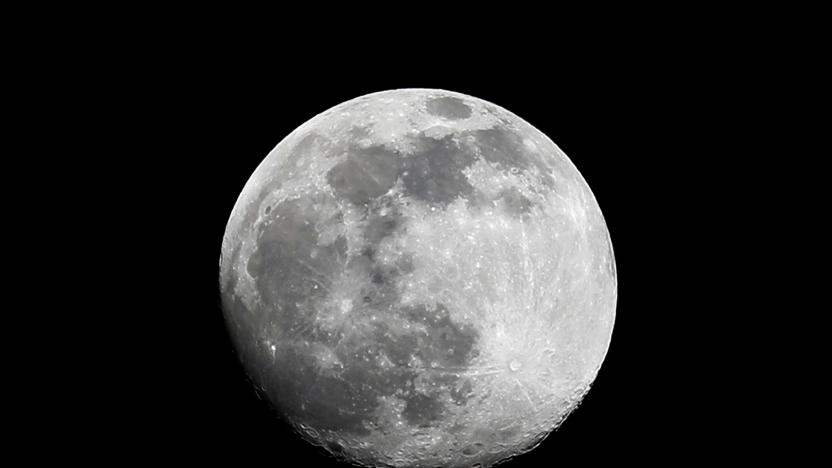
Russia and China want to build an 'international' station on the Moon
The two countries say they will collaborate on an “International Lunar Science Station” that they plan to open to other countries.

The ExoMars rover mission has been postponed until 2022 for further testing
The ExoMars mission to carry a rover to the red planet will not launch this year as planned, according to the European Space Agency (ESA) and Russia's Roscosmos. The agencies announced that several components of the spacecraft, particularly the parachutes, still need testing. That means they'll miss the planned 2020 launch window and will need to wait for the next opportunity happening sometime between August and October 2022.
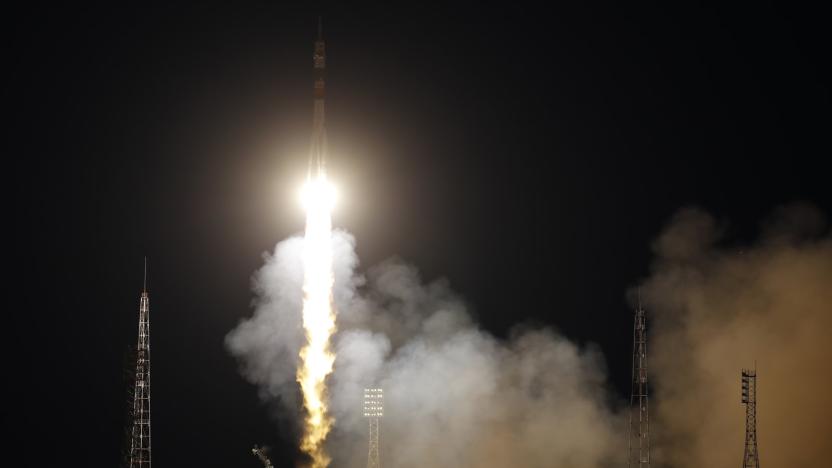
Russia is making more Soyuz spacecraft to help NASA's ISS missions
While the US wants to reduce its dependence on Russian rockets, Russia itself is expecting to help for a while yet. Roscosmos chief Dmitry Rogozin recently ordered the construction of two more Soyuz MS spacecraft, one of which will help NASA deliver astronauts to the International Space Station. The decision follows a letter from NASA director Jim Bridenstine warning of a delay in starting American commercial spacecraft flights. The US may need extra seats in 2020 and 2021, Rogozin said, and this extra spacecraft will help in a pinch.

Russia tests new Soyuz rocket by sending a humanoid robot to the ISS
Russia's space agency, Roscosmos, has just launched a new Soyuz booster on a trip to the ISS. Unlike other Soyuz flights that blast off to bring astronauts to the space station, this trip has no humans on board. It does, however, have a passenger: a humanoid robot nicknamed Fyodor. The machine's real model name is Skybot F-850, and it's one of the latest versions of the FEDOR robot Russia has been working on for years.

Russia will fly two space tourists to the ISS in late 2021
Russia has flown just seven tourists to space since 2001, but it's about to expand that number in the near future. The country's space agency, Roscosmos, has signed a deal with Space Adventures to carry two "spaceflight participants" (read: tourists) to the International Space Station in late 2021. They'll fly aboard a familiar Soyuz spacecraft for a "short duration" trip. The guests haven't been named, although it's safe to presume they'll have large bank accounts.
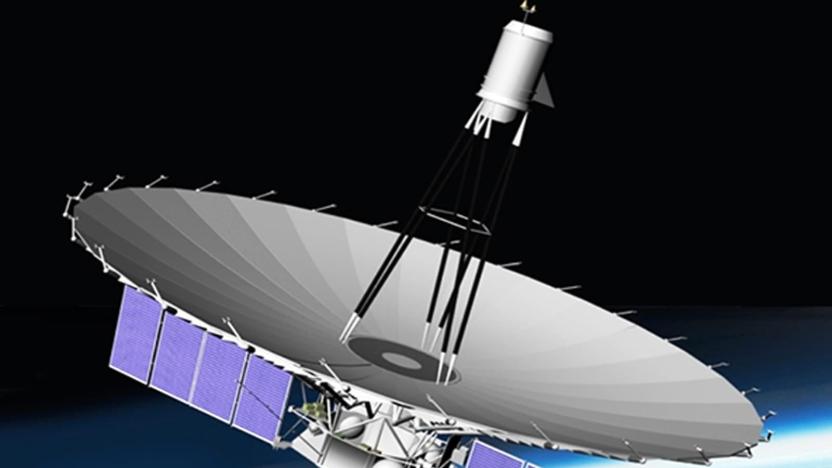
Russia lost control of an orbiting radio telescope (updated)
Russia's astronomy program is facing a significant setback. The country's orbital Spektr-R radio telescope has stopped responding to commands since January 11th. While it's still transmitting signals, the satellite effectively can't be used for future tasks in its current state. The space agency Roscosmos said it would next try to regain control and fix issues on January 13th at 2PM Moscow time (6AM Eastern), but it's not clear what would happen after that.
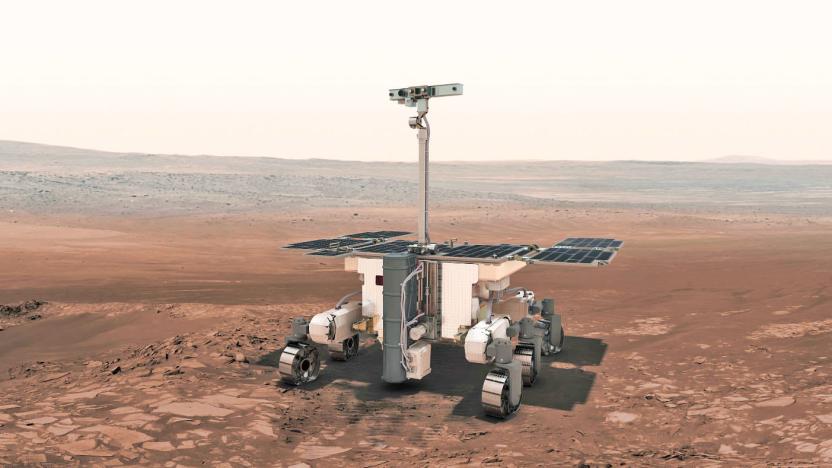
The ExoMars rover may search for life near the Red Planet's equator
Europe and Russia's ExoMars rover has been assigned its destination on the Red Planet. The robot explorer will almost certainly land on Oxia Planum -- a site rich in iron-magnesium clays near the equator -- say scientists from the Landing Site Selection Working Group (LSSWG) in Leicester, UK. They've been discussing touchdown options for around four years and -- with the blessings of the European and Russian space agencies -- this could be the spot. Unless, of course, they change tack and opt for the other site in contention: Mawrth Vallis, which lies just north of Oxia, reports the BBC.

After Math: The best kind of falling star
Gavin McInnes and his gang of Proud Boys, newly minted stars of the Alt-Right, took their first steps back toward irrelevancy this week when they got themselves banned from Facebook. At the same time, we've had to say goodbye to a pair of space-based telescopes (Kepler and Dawn), as they reached the end of their operational lifespans; Roscosmos blamed the recent Soyuz launch failure on a bent sensor pin and Apple announced that it would no longer report the sales numbers for the stars of its product lineup -- iPhones, iPads and Macs -- after it was reported that smartphone sales slumped six percent globally this year.

Russians say ISS air leak could be a result of sabotage
Last Thursday, NASA informed the public that there was an air pressure leak aboard the International Space Station. It was extremely small and posed no immediate danger to astronauts. Flight controllers worked with the astronauts to determine that there was what appeared to be a drill hole aboard an attached Soyuz capsule that the astronauts attempted to patch. Now, the Russians are investigating sabotage as a possibility.

Russia may send a robot 'crew' to space in 2019
Leveraging robotics to undertake dangerous missions has obvious benefits for mankind, and space travel is no exception. In 2011, NASA sent its dexterous assistant 'Robonaut 2' on a trip to the International Space Station (ISS) with the objective of working alongside presiding astronauts. Now a "source in the rocket and space industry" tells RIA Novosti that a Russian android duo could be following suit as early as next year.
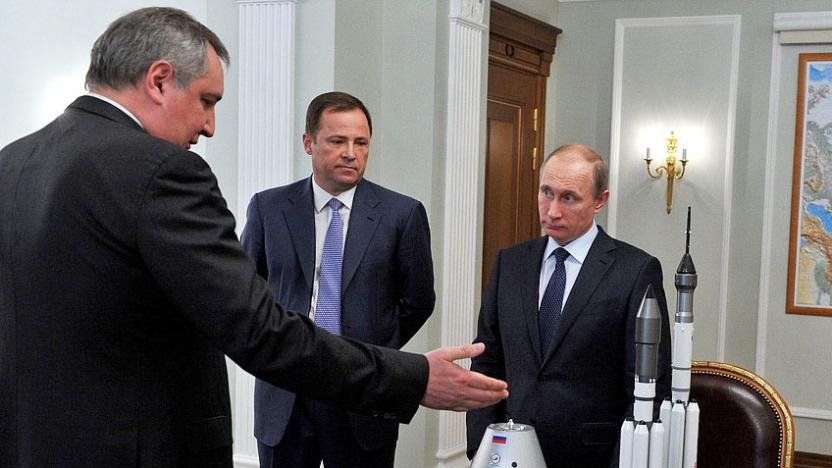
Russia lost a $45m satellite because of a launchpad mix-up
Despite Russia's ambitious plans for space domination, it hasn't had a great deal of luck bringing its designs to fruition. The Roscosmos program's budget was slashed in 2015 (because of "moral decay") and in April last year a technical glitch postponed the launch of its first rocket from the Vostochny cosmodrome. Now, the team has straight-up lost a satellite after setting it to launch from the wrong place.
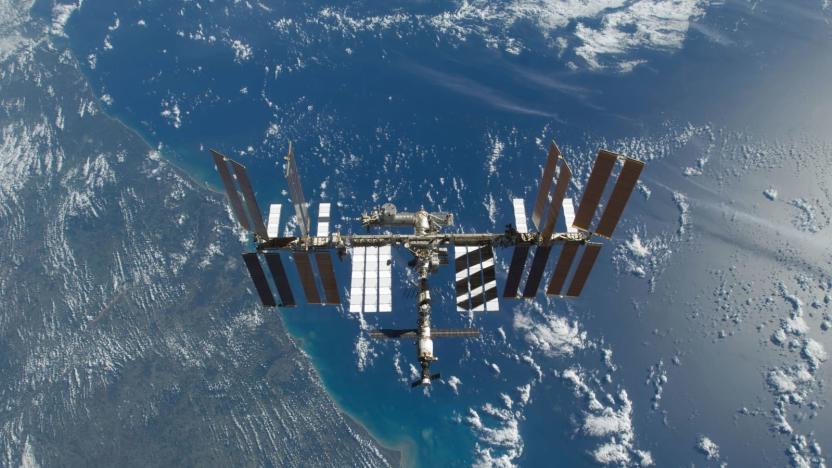
Russia is planning to put a luxury hotel on the ISS
While American private corporations are working to offer paying customers a short trip to space (or the edge of it), Russia is cooking up something grander. According to Popular Mechanics, it saw a proposal detailing Russian space corporation Roscosmos' plan to build a luxury hotel on the ISS. Anybody whose pockets are deep enough to shell out at least $40 million for the experience can stay there for a week or two. An additional $20 million will buy them the chance to go on a spacewalk with a cosmonaut.

Russia and the US will work together to build a moon base
There have been rumors that the US and Russia would be teaming up to build a lunar base. Sources within the country told Popular Mechanics that the head of their space organization, Roscosmos, was set to announce a partnership agreement with NASA this week. Now, Roscosmos and NASA have both released statements saying stating the two countries' shared "common vision for human exploration." They go on to say that Russia and the US will cooperate on a Moon program, specifically mentioning the Deep Space Gateway by name. That's the base NASA plans to build in lunar orbit starting in the 2020s (the statement sets a mid-2020s goal for beginning the project). The release also mentions that other international partners are considering signing onto the lunar base.
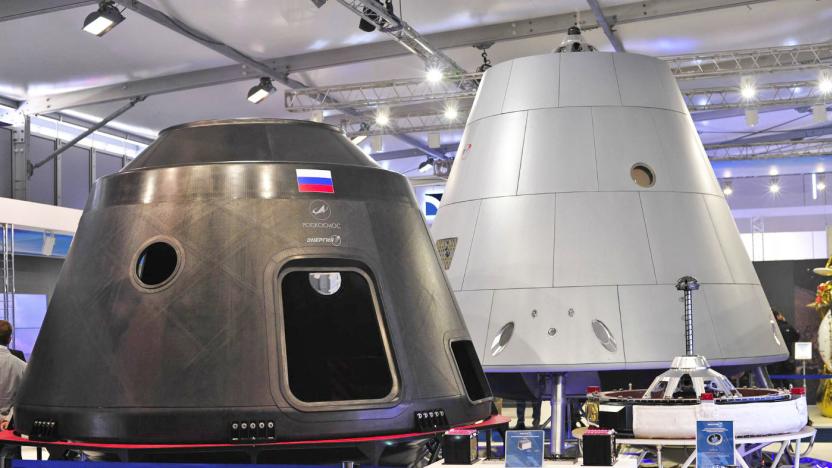
Russia's space agency preps for its first manned moon landing
NASA, the US government and American space corporations aren't the only ones with their eyes on the moon. Russia's Space Agency (Roscosmos) has begun planning for its first manned lunar landing, starting with a recruitment drive for potential cosmonauts. The agency is looking for six to eight trainees with a background in engineering or aviation, or those who already have experience working in the space industry. All interested candidates will go through several stages of psychological, physical and medical tests during the selection process. The chosen eight will have to undergo some intense training until four remain. Those who get the job will pilot Russia's next-gen reusable manned spacecraft Federatsiya.

Europe and Russia move their ExoMars mission launch to 2020
While the first part of Europe's and Russia's ExoMars mission took off on time in March, the second phase has been delayed. They've decided to launch their Martian rover, which will be capable of drilling up to two meters (6.5 feet) below the surface, in 2020 instead of 2018 like they previously planned. According to the BBC, Roscosmos' engineers have been having a hard time designing rover's landing mechanism. At the same time, European Space Agency's engineers are also having trouble putting together all the components and instruments ExoMars' second phase needs.

Russia has plans to nuke Earth-bound asteroids, if necessary
From 2012 to 2015, Russia researched ways of deflecting Earth-bound asteroids using nuclear weapons and came up with a best-case scenario, The Telegraph reports. The Central Scientific Research Institute of Machine Building, an arm of Russia's state-run Roscosmos space agency, worked on the asteroid problem with other countries (including the United States) in a program called NEOShield, which was largely funded by the European Commission. Note that "NEO" in this case stands for "Near-Earth Object," not The One you're probably imagining.

Vladimir Putin dissolved Roscosmos, Russia's federal space agency
With the flourish of a pen earlier today, Russian president Vladimir Putin officially put an end to Roscosmos, the country's federal space agency. That decree capped off over a year's worth of organizational despair as the agency saw its ten-year budget cut (again), the loss of a handful of spacecraft and the misuse of over 92 billion rubles (or $1.8 billion) in part thanks to a pervasive culture of corruption. Don't worry about the country's spacebound ambitions, though — Roscosmos will be reborn as a state-run corporation on January 1.

Russia's next space station trip will take days, not hours
It's not a great time to be a Russian cosmonaut. Thanks to the International Space Station making a maneuver to avoid space junk, the next Soyuz spacecraft's flight (due September 2nd) will take two days to reach the station instead of the relatively brisk six hours of recent trips. That's more than a little unpleasant if you're stuck in a cramped capsule, and negates a lot of the planning work that has saved so much time from 2013 onward. There's no indication as to when (or if) launches will speed up, so crews may have little choice but to tough it out in the near future. [Image credit: NASA, Flickr]

NASA renews ISS flight contract with Russia for $490 million
Despite NASA's budget increase in 2015, the Congress didn't allocate enough money for the Commercial Crew Program to fast-track the development of American spacecraft that can ferry the ISS crew. As such, the agency is forced to extend its transportation contract with Russia yet again, because it still needs the Roscosmos' help to take American astronauts to the space station. In a letter addressed to the Congress, NASA Administrator Charles Bolden has notified lawmakers that the agency had to pay another $490 million for Russia's services. More importantly, he has urged the Congress not to reduce the Commercial Crew funding even further for fiscal year 2016, as that would spell disaster for the program.










